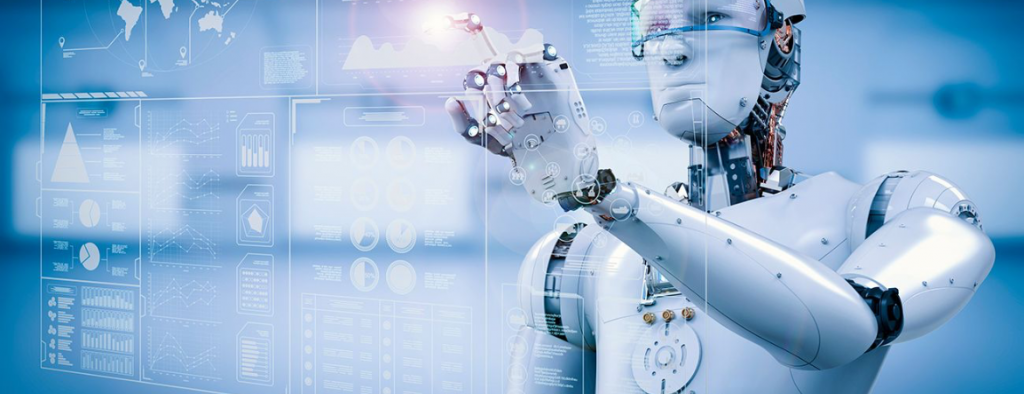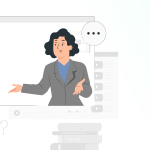According to Autonomous NEXT, Artificial Intelligence (AI) can reduce 22% of all banking costs by 2030. That is a whopping US$ 1 trillion saved!
A Mckinsey Global Institute survey based on the US Bureau of Labor Statistics, 2014 states that 23% of lawyers’ work can be automated.
The following image illustrates 6 lawyer jobs that AI is already doing:
Artificial Intelligence was first envisaged in a Maths conference called the Dartmouth Workshop of 1956 and it took more than half a century for AI to be a part of our global daily reality.
But this does not mean that AI will take your jobs.. As a lawyer, adapting to the latest advancements in tech-law and mastering tech law skills is bound to take your career to the next level!
Recently, Microsoft researcher Kate Crawford stated that “AI is neither artificial, nor intelligent ’commenting on the legal issues involving AI. It is true that many big tech companies and tech-startups have faced multiple expensive additional costs surrounding implementation of AI.
On March 23, 2016, Microsoft uploaded its chatbot Tay.ai on Twitter. It had to be removed within 16 hours because it had begun making openly racist and misogynist posts.
In November 2019, Apple’s co-founder Steve Wozniak tweeted, alleging gender bias in determining credit limits shown by Apple’s online credit card. This led to an investigation from a prominent US regulator – Department of Financial Services (DFS), New York.
In 2019 itself, Amazon faced congressional hearings on an earlier version of the API-based face-recognition software ‘Rekognition’ due to its failure on the grounds of gender and ethnic biases.
As a result, the need for regulations has been felt. Side by side, the need for legal experts to ensure regulatory-compliance has also been felt acutely. There is a huge demand and low supply for experts today who can handle AI-related legal work. Make the
INTERNATIONAL AI LAWS
2019 was not only big in terms of AI-controversies but was a big year for AI also in terms of legal regulations.
- The G20 AI Principles were adopted in June 2019. These principles seek to foster public trust and confidence in AI technologies and realise their potential, through promoting principles such as inclusiveness, human-centricity, transparency, robustness and accountability.
- In September 2019 the World Economic Forum issued ten AI Government Procurement Guidelines. One of the avowed purposes of these Guidelines is to align AI procurement processes to public risk-benefit assessment and determine AI-adoption across governances and regulatory regimes accordingly.
- The European Commission published its Policy and Investment Recommendations for Trustworthy Artificial Intelligence in June 2019. The purpose of this Policy, formulated by the High Level Committee of the EU Commission, was to ensure a global regime where AI that are robust and yet, at the same time, lawful and ethical, can flourish!
NATIONAL AI LAWS
- In the UK, the Digital Economy Strategy 2015 regulates application of AI in commerce
- In USA, a draft Guidance for Regulation of Artificial Intelligence Applications was published by the White House on January 7, 2019, following an Executive Order on Maintaining American Leadership in Artificial Intelligence
- In India, the Copyright Act, 1957 and the Patents Act, 1970 constitute the AI-regulatory framework, in terms of trade secrets, license agreements, and ownership of intellectual property. The Competition Act, 2002, covers antitrust/ competition issues whereas the Companies Act, 2013 determines the resolution of corporate decision-making issues
GLOBAL OPPORTUNITIES
As a result of the massive ongoing growth of the AI subsector of the tech industry, many opportunities of working as a tech lawyer on AI issues have opened up worldwide
The PwC Paper “AI: An opportunity amidst a crisis’, December 2020, indicates that AI has grown at a gigantic rate in India ever since the onset of Covid19 and consequent lockdowns. Around 94% of the over 200 CEO-s interviewed stated that they have either adopted or are planning AI-implementation in their companies.
Application of AI has been increasingly adapted by e-commerce, the health, defence and education sectors, the travel and hospitality industry, technology, media and telecommunications firms, finance firms worldwide, leading to this spurt of opportunities.
From what all tech-market pundits are saying, this growth in AI is here to stay!
Not to be left behind, the legal profession is embracing the opportunities associated with AI.
The role of AI in document-discovery, due diligence, contracts and researched-based legal work is being established worldwide. Machine learning has become a part and parcel of legal activity in today’s world.
Opportunities for lawyers to work on AI and other related tech-legal issues are opening up worldwide.
A simple job-search on Indeed reveals that prominent AI-based tech-giants and startups like Adobe, Blackberry, Accenture and even prominent law firms like Linklaters LLP and Goodwin Procter LLP have LIVE JOB OPENINGS for tech-lawyers to work on AI related issues.
Do you want to know how you can become eligible for roles at these big-tech giants?
Do you want to make the most of the opportunities as a lawyer in AI-based technologies?
Join our FREE ONLINE 3-Day Bootcamp on Building an International Career in Technology Law, 26-28 June, 6-9 PM IST, to learn from industry experts about how you can tap into these and many more opportunities in technology law that are bound to come up in the coming months and years!
Don’t miss out on this opportunity of career-growth as a technology lawyer!
REGISTER NOW <insert button>
Invite your friends, classmates and colleagues to the FREE 3-day online bootcamp on building an international career in technology law from 26-28 June 2021, 6-9pm IST by sharing this link: https://bit.ly/2T2T9LA
Once registered we recommend you to add the bootcamp to your calendar.
To receive regular updates on technology law directly on your phone join our WhatsApp and Telegram channel:
WhatsApp: https://chat.whatsapp.com/LhpTMbMGbXV42kg0llnQxi
Telegram: https://t.me/joinchat/RoPKARepwkxwCQSN
Do you want to know more about technology law? Check out our YouTube Playlist which has some of our past webinars and workshops content on this topic.
Looking forward to seeing you at the bootcamp.
Students of Lawsikho courses regularly produce writing assignments and work on practical exercises as a part of their coursework and develop themselves in real-life practical skills.
LawSikho has created a telegram group for exchanging legal knowledge, referrals, and various opportunities. You can click on this link and join:
https://t.me/lawyerscommunity2
Follow us on Instagram and subscribe to our YouTube channel for more amazing legal content.






 Allow notifications
Allow notifications
